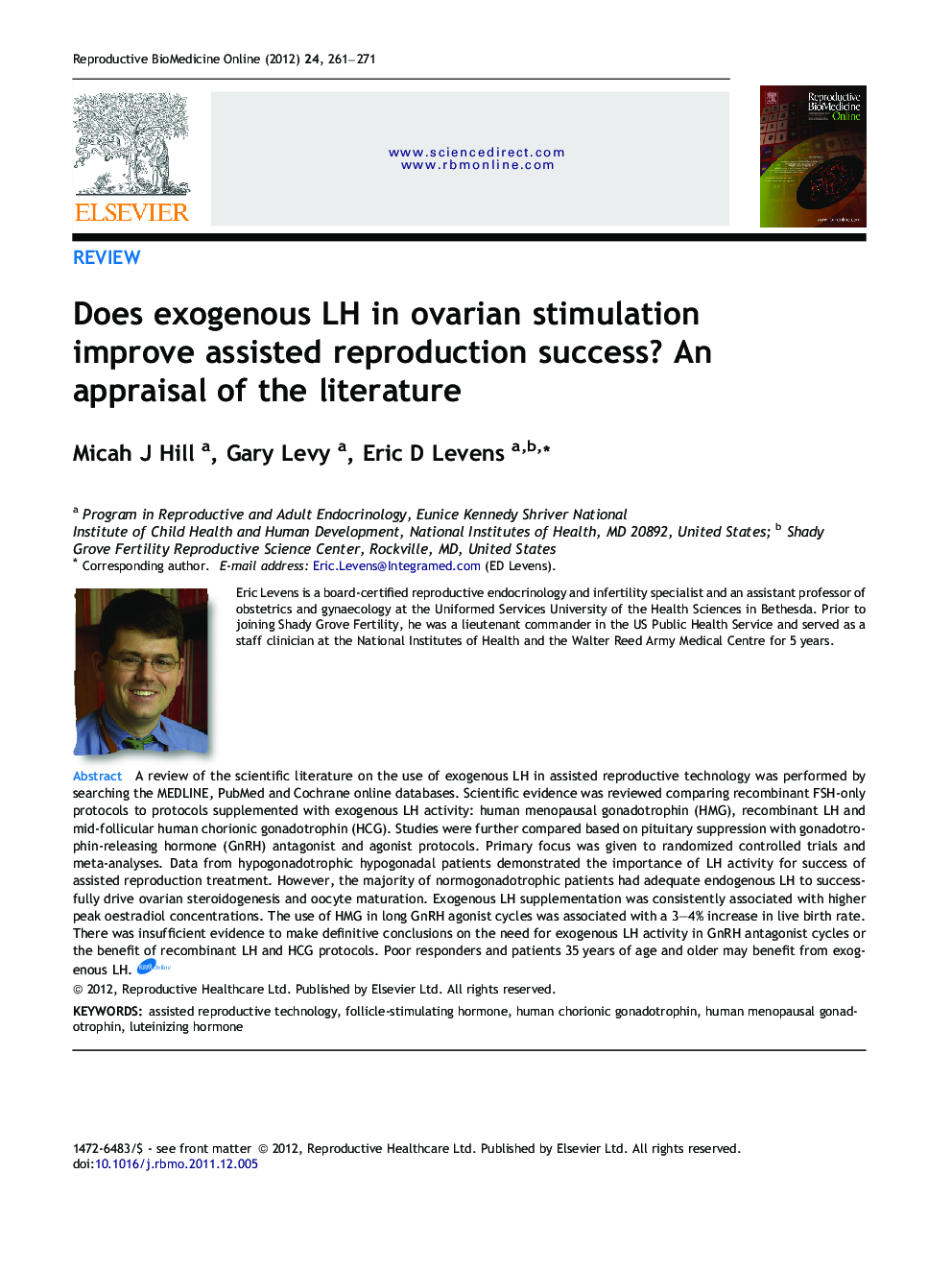| Article ID | Journal | Published Year | Pages | File Type |
|---|---|---|---|---|
| 3971046 | Reproductive BioMedicine Online | 2012 | 11 Pages |
A review of the scientific literature on the use of exogenous LH in assisted reproductive technology was performed by searching the MEDLINE, PubMed and Cochrane online databases. Scientific evidence was reviewed comparing recombinant FSH-only protocols to protocols supplemented with exogenous LH activity: human menopausal gonadotrophin (HMG), recombinant LH and mid-follicular human chorionic gonadotrophin (HCG). Studies were further compared based on pituitary suppression with gonadotrophin-releasing hormone (GnRH) antagonist and agonist protocols. Primary focus was given to randomized controlled trials and meta-analyses. Data from hypogonadotrophic hypogonadal patients demonstrated the importance of LH activity for success of assisted reproduction treatment. However, the majority of normogonadotrophic patients had adequate endogenous LH to successfully drive ovarian steroidogenesis and oocyte maturation. Exogenous LH supplementation was consistently associated with higher peak oestradiol concentrations. The use of HMG in long GnRH agonist cycles was associated with a 3–4% increase in live birth rate. There was insufficient evidence to make definitive conclusions on the need for exogenous LH activity in GnRH antagonist cycles or the benefit of recombinant LH and HCG protocols. Poor responders and patients 35 years of age and older may benefit from exogenous LH.LH is essential in natural human reproduction. In many infertile patients treated with assisted reproductive technology, LH concentrations are naturally sufficient to allow for successful conception. The need for the physician to supplement the patient with additional LH as a medication has been a matter of medical controversy. This article reviews the scientific evidence available on the importance of LH in assisted reproduction treatment. Using a form of LH combined with FSH derived from humans (human menopausal gonadotrophin) results in a 3–4% higher live birth rate. Insufficient scientific evidence exists to recommend other forms of LH and more research is needed to clarify this question. Patients who are over the age of 35 or who are poor responders to ovarian stimulation may also benefit from the addition of LH to their ovarian stimulation protocol.
